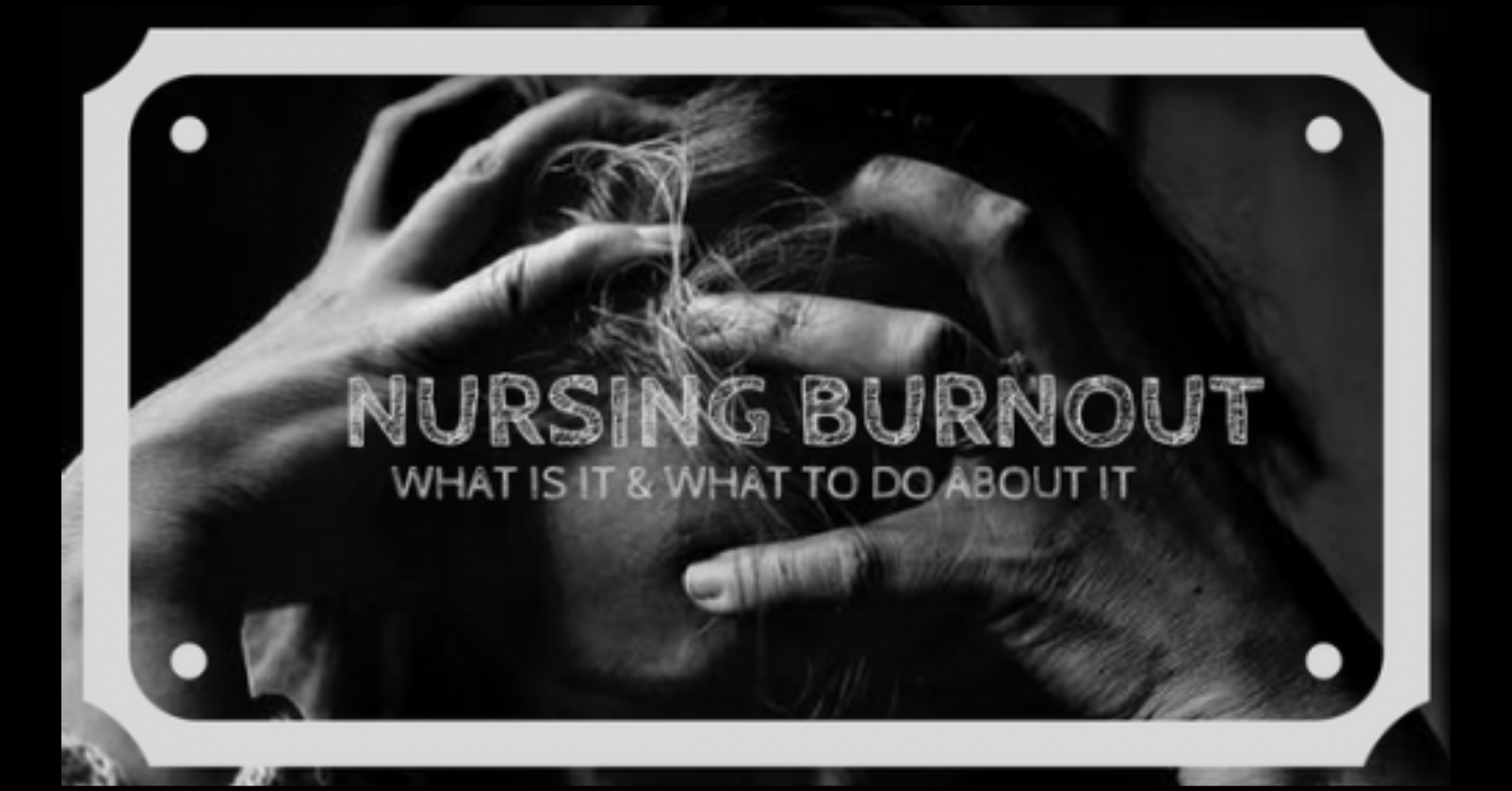Nursing Burnout: What Is It And What To Do About It
Published
Are you burned out? Karen Anderson, Clinical Nurse Specialist for Patient and Family Centered Care at the Hospital of The University of Pennsylvania explains how to recognize the symptoms and how to get help.
Many of us became nurses because we wanted to help others and connect with patients. But with long hours, understaffed units, and the high-stress situations we encounter on a daily basis, burnout may seem inevitable.
According to our 2021 HealthyNurse Survey results, more than half of respondents (63 percent) consider workplace stress to be the biggest issue affecting our health. Plus, more than half of nurses regularly work 12-hour shifts. All of these factors can contribute to burnout.
What is Burnout?
“Nurses often use the words ‘burnout’ and ‘depression’ interchangeably, but they’re two distinct conditions,” explains Karen Anderson, Clinical Nurse Specialist for Patient and Family Centered Care at the Hospital of The University of Pennsylvania.
Burnout is a state of emotional, physical, and mental exhaustion that stems from our work. Burnout can lead to depression, which affects all areas of our lives resulting in changes in sleep patterns, appetite, mood, and at its most severe, hopelessness and thoughts of suicide. Burnout centers on our work as a nurse. Studies that monitor nurse turnover show that as a nurse’s workload increases, so does burnout and job dissatisfaction. According to the RN Work Project (Editor's note: the RN Work Project is now archived), 18 percent of nurses leave the profession within one year and 60 percent leave within eight years.
What About Compassion Fatigue?
Nurses want to connect with patients and families on an emotional level. Over time we may lose that capacity due to something called compassion fatigue. It’s not an intentional switch. Rather, it’s a form of burnout that causes nurses to disengage from their patients, families, and peers. It can be a vicious cycle: Chronic unacknowledged stress causes us to avoid meaningful interactions with our patients leading to feelings of failure, increased potential for poor outcomes and errors, and even a desire to quit our jobs or our professions.
Recognize the Signs
Anderson says, “If you’re regularly wondering if you’re making a difference, or you dread going to work, you may be burned out.” Once you recognize the signs, you can be proactive and get help if you need it. You may be suffering from burnout or compassion fatigue if you:
- Feel depressed or exhausted during your shift, but content outside of work
- Work solely for the paycheck and not for the fulfillment you originally got from the job
- Feel irritable or short-tempered
- No longer enjoy getting to know patients
- Don’t make an effort to build rapport with patients and their families
How to Get Help
Don’t go at it alone. Since we work in the health care setting, we have support all around us. If you’re struggling with burnout or compassion fatigue, reach out to your employee assistance or wellness program for help. You’ll be able to speak with a therapist to ensure you’re experiencing burnout and not depression.
A counselor through your employee assistance program can also help you do a self-assessment. Questions they may walk you through, include:
- Is it possible that you are being over-scheduled?
- Are you still getting what you want from this job?
- How do you connect with patients and families?
- Do you feel and get respect for/from your peers and boss?
- Are you working in a place where you have some autonomy?
- Do you feel that you can change the things you don’t like? How?
A counselor, therapist, or your nurse manager can help you come up with strategies to derive more job satisfaction in your current position, or they may suggest that you take a vacation or look into other career paths within the nursing profession. Sometimes interviewing at other hospitals and organizations help you see the positives in your current workplace.
Have you experienced burnout or compassion fatigue? Share your story with us in our discussion.
Find this helpful? Share this post with your colleagues or on Facebook, Twitter, or Instagram by clicking the icons to the left.
Are you or someone you know feeling symptoms of depression? Learn the signs here. If you or anyone you know is experiencing suicidal thoughts or feels in crisis, please call the National Suicide Prevention Lifeline at 1 (800) 273-8255. The National Suicide Prevention Lifeline is free and confidential.

Have you joined Healthy Nurse, Healthy Nation (HNHN) yet? Join us today!
Updated 5/9/22
Sources:
Healthy Nurse, Healthy Nation: Year 4 Highlights 2020-2021. (2021, October).
Compassion fatigue: Are you at risk? (2017, June 09). Retrieved July 11, 2017.
Mol, M. M., Kompanje, E. J., Benoit, D. D., Bakker, J., & Nijkamp, M. D. (2015, August 31). The Prevalence of Compassion Fatigue and Burnout Among Healthcare Professionals in Intensive Care Units: A Systematic Review. Retrieved July 11, 2017.
American Sociological Association (ASA). (2014, August 19). Nurses driven mainly by a desire to help others are more likely to burn out. ScienceDaily. Retrieved July 10, 2017.
RN Work Project. Retrieved May 9, 2022 and is now archived.
Blog Mental Health
08/11/2017 11:38am CDT



Post a Comment or Question